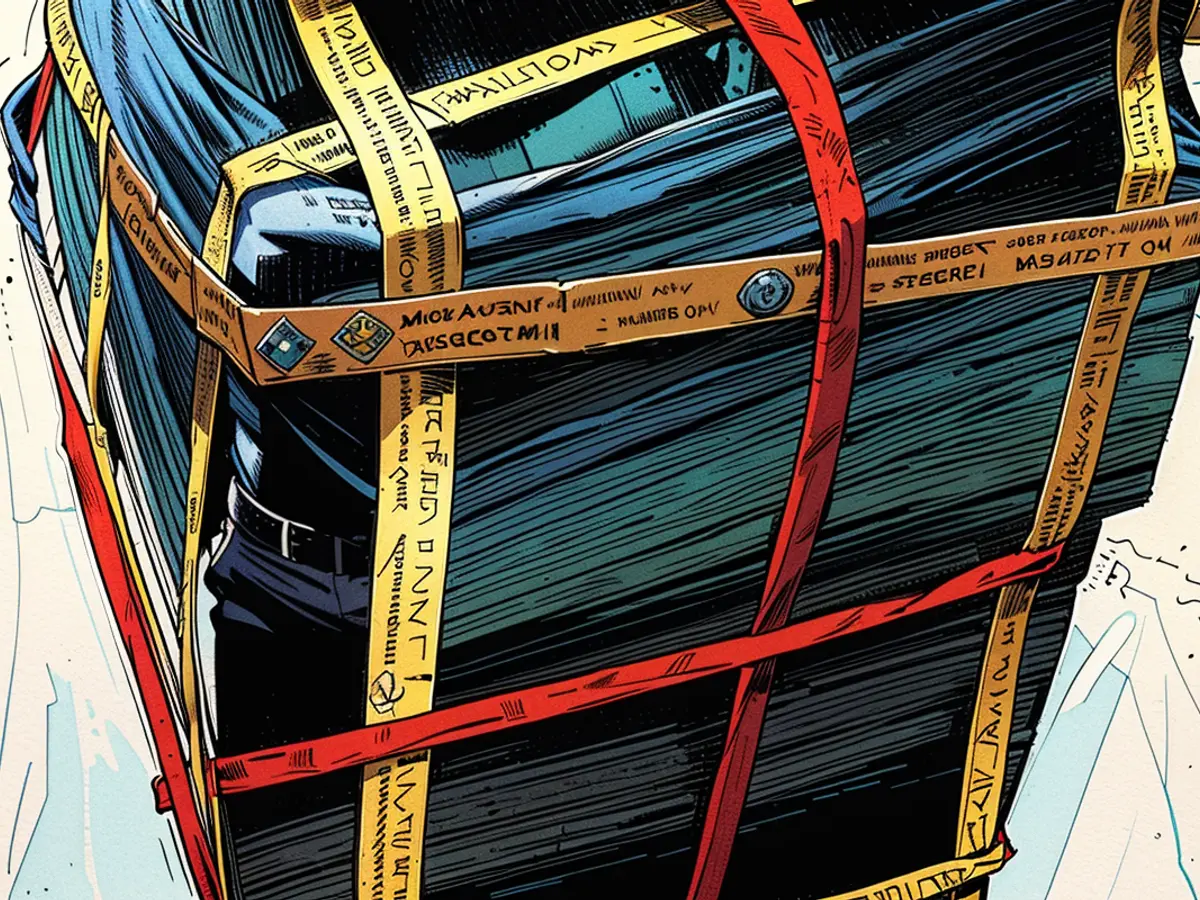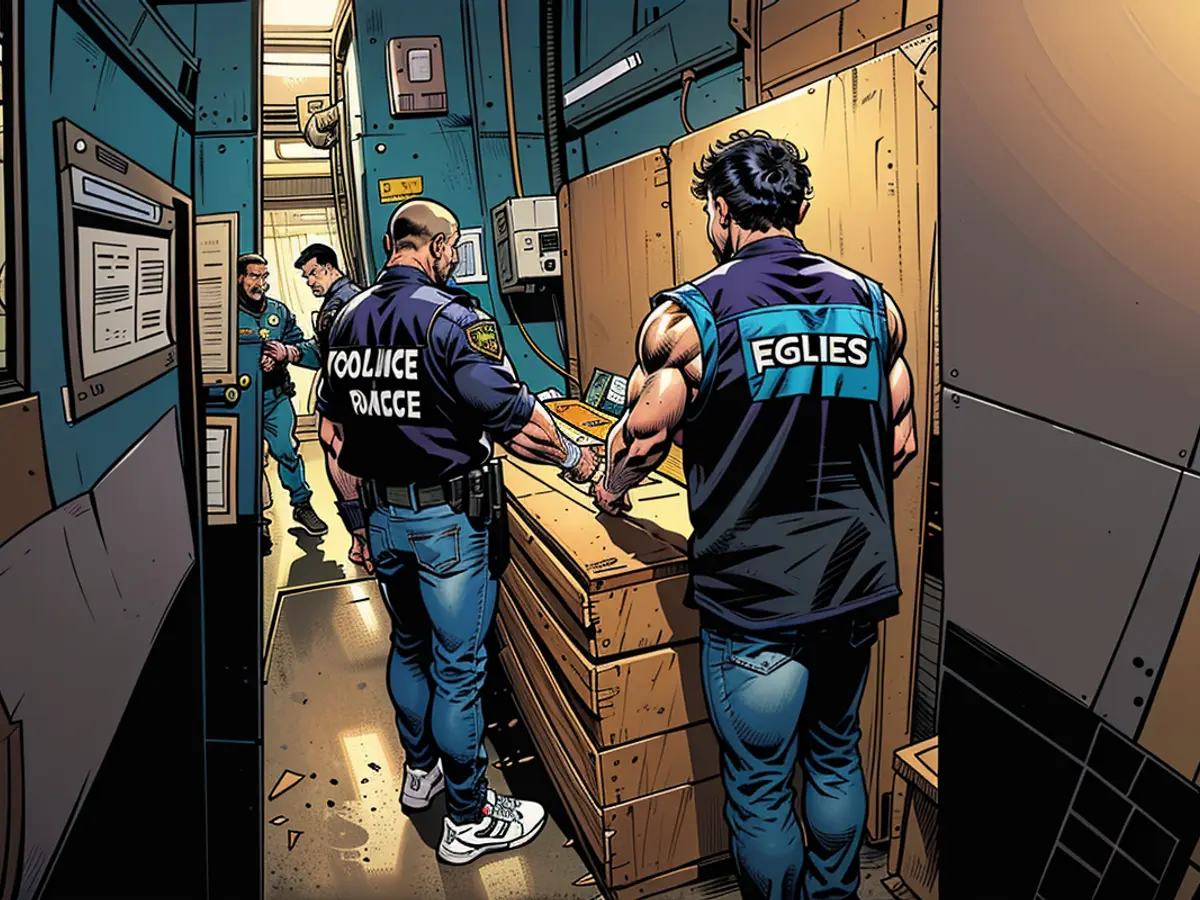Law enforcement agencies in France and Italy dismantle a criminal organization that traded counterfeit luxury wine bottles valued at around $16,000 each.
Law enforcement agencies in Italy conducted searches at 14 locations and confiscated significant amounts of wine, fake wine labels from renowned French wineries, bottle recapping machinery, and valuable electronic devices worth €1.4 million ($1.5 million) along with over €100,000 ($109,000) in cash, as per information from Europol published on Tuesday.
Italian authorities uncovered a scheme where fake wine was produced in Italy, later transferred to an Italian airport, and exported globally for sale at market value by legitimate wine traders, according to Europol.
The Europol statement mentioned that the techniques used by the counterfeiters led to a connection with a previous investigation involving a Russian fraudster who was apprehended in 2015. A 40-year-old Russian man, previously convicted in a similar wine scam under a different identity, was implicated in the recent probe by French prosecutors.
The network allegedly sold an immense quantity of high-end French wines valued at more than €2 million ($2.18 million). A French citizen was charged with fraud and money laundering and a Russian national will face the same judge for the same charges, according to the French prosecutors.
This operation was led by the French Gendarmerie and involved collaboration from Italian Carabinieri and Swiss Federal Police.
Stuart George, founder and managing director of Arden Fine Wines, a London-based wine merchant specializing in fine and rare vintage wines, stated that "determining accurate figures on fine wine fraud is challenging since it is an underhand, secretive activity." The rising interest in fine wine due to the 21st-century surge in demand has motivated fraudsters, as per George.
He added that fraudsters benefit from a lack of expertise in the industry. "Most individuals cannot differentiate between genuine and fake products," George highlighted. "It's difficult to recognize a counterfeit bottle if an individual has never seen a genuine one like a Petrus 1990."
According to George, enhancing skills in the industry and gaining knowledge about genuine bottles of fine wineries, especially older ones, can help combat wine fraud. He concluded that "ultimately, it comes down to integrity and competence."
Italian authorities dismantled a ring producing forged Sassicaia wine, a highly-prized variety, in October 2020, as reported by Reuters. Bolgheri Sassicaia red wine, originating from a coastal region in Tuscany, Italy, has gained immense popularity since its market entry in the 1970s and is now considered one of Italy's top-notch fine wines, selling for hundreds of euros per bottle. Officials from Guardia di Finanza allegedly discovered that the counterfeit Sassicaia wine was being bottled with inferior wine from Sicily in a warehouse near Milan, featuring meticulously reproduced labels and cases shipped from Bulgaria.
The confiscated electronic devices might have contained information related to the production and distribution of counterfeit wine, potentially leading to further investigations in the food and drink industry. After tasting the fake Sassicaia wine, discerning connoisseurs could notice its difference from the authentic one, highlighting the importance of expert knowledge in the foodanddrink sector.

Read also:
- Fear of escalation in the Middle East: US Secretary of State Blinken travels to the region again
- Government circles: US Secretary of State Blinken to travel to Middle East again
- Bridging days 2024: How you can double your vacation this year
- Germany has wanderlust: how tour operators and airlines are looking ahead to the next travel year








